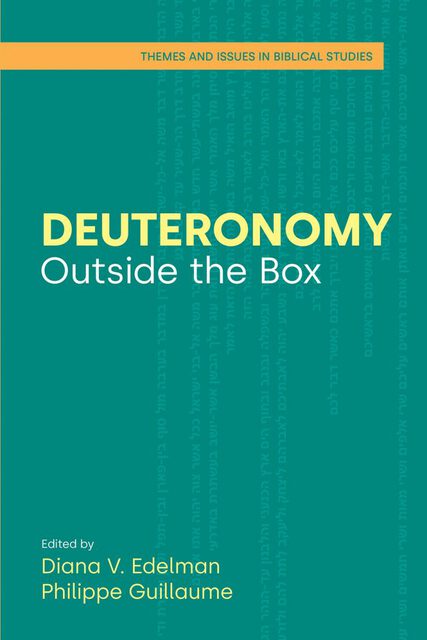Edelman/Deuteronomy, 2. The Role of The Oath-Bound Agreement (Berît) in the Book of Deuteronomy

Full description
Comparative ancient Near Eastern terminology suggests that the Hebrew term berît (ברית) designated a formal, oath-bound agreement with two constituent elements: the ‘edut, “written specifications,” and the ‘edut, “oath” or “curse.” Its use in Deuteronomy can be construed either as an example of a formal vassal treaty entered into between Yhwh and Israel, or as the written terms of formal contracts, whose Hittite examples have been dubbed “instructions,” being entered into by various groups of “royal” (divine) employees, who participated in an oath-swearing ceremony to uphold the stipulated terms. In Deut 12:1–26:15, haḥuqqîm wehammišpāṭîm represent the directives for behavioral norms of the berît being entered into in the storyworld. They do not adhere to the formulation of known units in ancient Near Eastern legal collections; they are best construed either as treaty stipulations or instructions to royal employees. Finally, explanations for why Yhwh’s people are designated Israel, not Judah, are examined.
- typeImage
- created on
- file formatjpg
- file size64 KB
- container titleDeuteronomy: Outside the Box
- creatorDiana Edelman
- isbn9781800503724 (eBook)
- publisherEquinox Publishing Ltd.
- publisher placeSheffield, United Kingdom
- rights holderEquinox Publishing Ltd.
- series titleThemes and Issues in Biblical Studies
We use cookies to analyze our traffic. Please decide if you are willing to accept cookies from our website. You can change this setting anytime in Privacy Settings.
